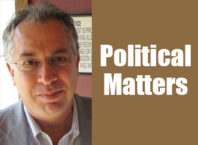Defends/Stands Up for People
In my June column for The Circle, I
wrote about Ken Tilsen, the dean of civil rights lawyers in Minnesota
and a committed advocate for American Indians, who was in very poor
health. Ken rallied during the summer, but then went to the Spirit
World on Sept. 1.
At his funeral, Sept. 4, at Temple of
Aaron Cemetery in Roseville, a large group of family members and
friends gathered for songs, prayers and eulogies.
The ceremony was a mix of Jewish and
Lakota rituals. Ken was from a Jewish family and, as things worked
out, he had grandchildren from the rez.
His older brother, Bob, mentioned that
Ken’s Hebrew name was Akiva, after the ancient rabbi who resisted
the Roman conquerors in the Holy Land two millennia ago. And grandson
Nick Tilsen, who lives in Porcupine, on the Pine Ridge reservation,
chanted a prayer in Lakota, followed by sharp blasts on an eagle
whistle.
Before the prayer, Nick said that he
wondered if his grandfather, who had done so much on behalf of
Indians over the years, had ever been given an Indian name. He said
that he loaded his pipe, smoked and prayed, and came up with a name:
Oyate Nawicakicijin – Defends/Stands Up for People.
“Today I am burying not just my
grandfather,” Nick Tilsen said, in his extemporaneous eulogy from
the heart. “He was my hero.”
Ken, who was born in New Leipzig,
North Dakota, in 1927, was raised in St. Paul’s Selby-Dale
neighborhood. He served in the U.S. Navy during World War II, and
later graduated from the University of Minnesota Law School.
His willingness to confront
illegitimate government authority had its roots in an incident before
a congressional investigating committee nearly 50 years ago. Ken had
served as president of the Marxist Socialist Club at the U of M, from
1948 to 1950. Years later, he was called to testify before the House
Committee on un-American Activities in 1964. He refused to answer any
questions about the group’s activities during his student days.
Throughout his life, Ken would come to the defense of the underdog
and stand up against the bullying of government officials.
“He really believed that lawyers had
a choice to do the right thing and not just defend anybody or
prosecute anybody,” his daughter, Judith Tilsen, a Ramsey County
district court judge, told the St. Paul Pioneer Press. “He cared
deeply about fairness and justice … it wasn’t just his work, it
was his passion.”
In the 1960s, Ken became widely known
for defending those resisting the military draft for the Vietnam War.
He also was active in the Civil Rights movement. Rosemary Massey (née
Freeman), an African American activist from Greenwood, Mississippi,
came to stay with the Tilsen family and was taken in like a daughter.
Regarding the Vietnam War era draft, Tilsen wrote a book, called
Judging the Judges, which examined the behavior of four federal court
judges who handled the case of draft resisters.
Perhaps Tilsen’s greatest prominence
came with his defense of American Indian Movement (AIM) activists
following the 71-day U.S. government siege of Wounded Knee, on the
Pine Ridge Indian Reservation, in 1973. Tilsen was part of the legal
team, along with the late William Kunstler and others, that defended
AIM leaders Dennis Banks and Russell Means. The AIM leadership trial
dragged on for nine months in St. Paul federal court. Judge Fred
Nichol finally threw out the case, in the face of pervasive illegal
behavior by the FBI and federal prosecutors.
Larry Leventhal served as the treaty
rights expert on the legal team. “In addition to doing the work
day-to-day at trial, [Tilsen] was managing virtually all of the cases
behind the scenes and working with lawyers,” Leventhal told me.
“He was literally involved in dozens
of cases … Many of the attorneys [around the Midwest] were not
familiar with the circumstances [during the Wounded Knee siege], they
were volunteers, or had not really dealt with Indian people, and Ken
would work over those things with many people.”
Besides the Banks-Means leadership
trial, there were around 300 other federal prosecutions in the
aftermath of the Wounded Knee takeover, according to Leventhal.
I was privileged to know Ken Tilsen
for about 50 years. He was a positive influence in my life, and his
steadfast commitment to social justice will continue to inspire those
he mentored and helped along the way. This is a sad time for Ken’s
longtime companion, Connie Goldman, and for his children,
grandchildren, great-grandchildren, siblings and close friends. But
he lived an extraordinary life and helped many people. May his memory
always be a blessing.




